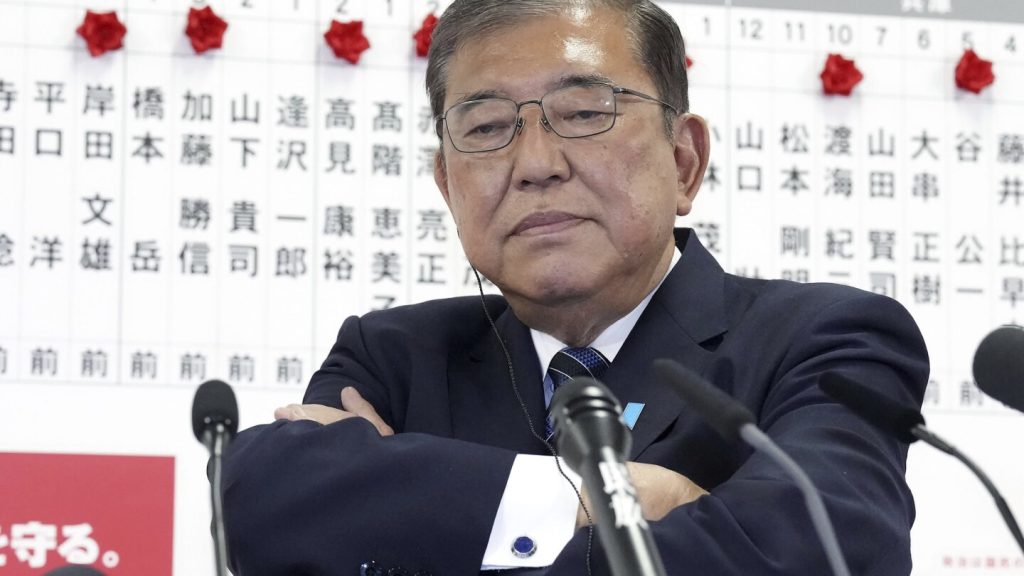Japanese Prime Minister Shigeru Ishiba’s ruling coalition lost its majority in the lower house of parliament in a key election on Sunday, indicating voters’ outrage over financial scandals within the governing party. While Ishiba’s Liberal Democratic Party remains the top party, a change of government is not expected. Falling short of a majority makes it difficult for Ishiba to push through his party’s policies, leading to political uncertainty. The ruling coalition has retained a majority in the upper house, but the results mark its worst performance since 2009, with only 214 seats secured.
Ishiba ordered the election in hopes of shoring up support after his predecessor failed to address public outrage over the scandals within the LDP. Despite the severe results, Ishiba remains committed to leading a ruling coalition and tackling key policies. The opposition Constitutional Democratic Party of Japan made significant gains, preventing the ruling coalition from securing a majority. However, forming a new government has proven challenging for the opposition due to a lack of viable partners. Ishiba may need to consider forming alliances with other parties to maintain power and implement his agenda.
The potential partners for Ishiba include the Democratic Party of the People and the Innovation Party, among others. However, the opposition’s inexperience and lack of cohesion may hinder their ability to form a coalition. Ishiba also faces backlash from scandal-tainted lawmakers within his party, requiring him to implement bold political reform measures to regain public trust. The election saw a record number of candidates, including a significant presence of women, vying for office, reflecting a growing sense of fairness and rejection of privileges for politicians among voters.
Experts suggest that a CDPJ-led government is unlikely due to its lack of viable policies to challenge the current government’s economic and diplomatic strategies. Ishiba’s ruling coalition is expected to seek partnerships with other opposition parties to maintain stability. Despite his initial popularity as a politician known for criticizing his own party’s policies, Ishiba’s support has dwindled since taking office. His Cabinet has faced criticism for lacking diversity and for retreating on progressive stances, leading to disappointment among voters. The political landscape in Japan is evolving, with a shift towards accountability and the rejection of traditional political privileges.


